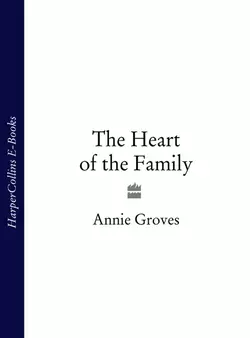The Heart of the Family

Annie Groves
Тип: электронная книга
Жанр: Современная зарубежная литература
Язык: на английском языке
Стоимость: 577.47 ₽
Статус: В продаже
Издательство: HarperCollins
Дата публикации: 18.04.2024
Отзывы: Пока нет Добавить отзыв
О книге: The much-loved author of ACROSS THE MERSEY tells of Liverpool under bombardment as never before – but the Campion family refuses to give in.The Campions have always stuck together through danger and sorrow, but even they begin to wonder if it’s time to take their youngest, the twins, to safety away from the bombing raids. The twins have other worries on their minds; having been inseparable, they now realise that they each have different ambitions – and Lou isn’t sure she’ll find what she wants close to home.Meanwhile, cousin Bella is managing a creche and discovers that life isn’t all about pleasure. She’s the last person her family would expect to help anyone; but when a figure from the past turns up on the doorstep, Bella’s unexpected reserves of compassion are revealed.From hardship and heartbreak, surviving the toughest of times, the Campions know they can make it through if they have one another.